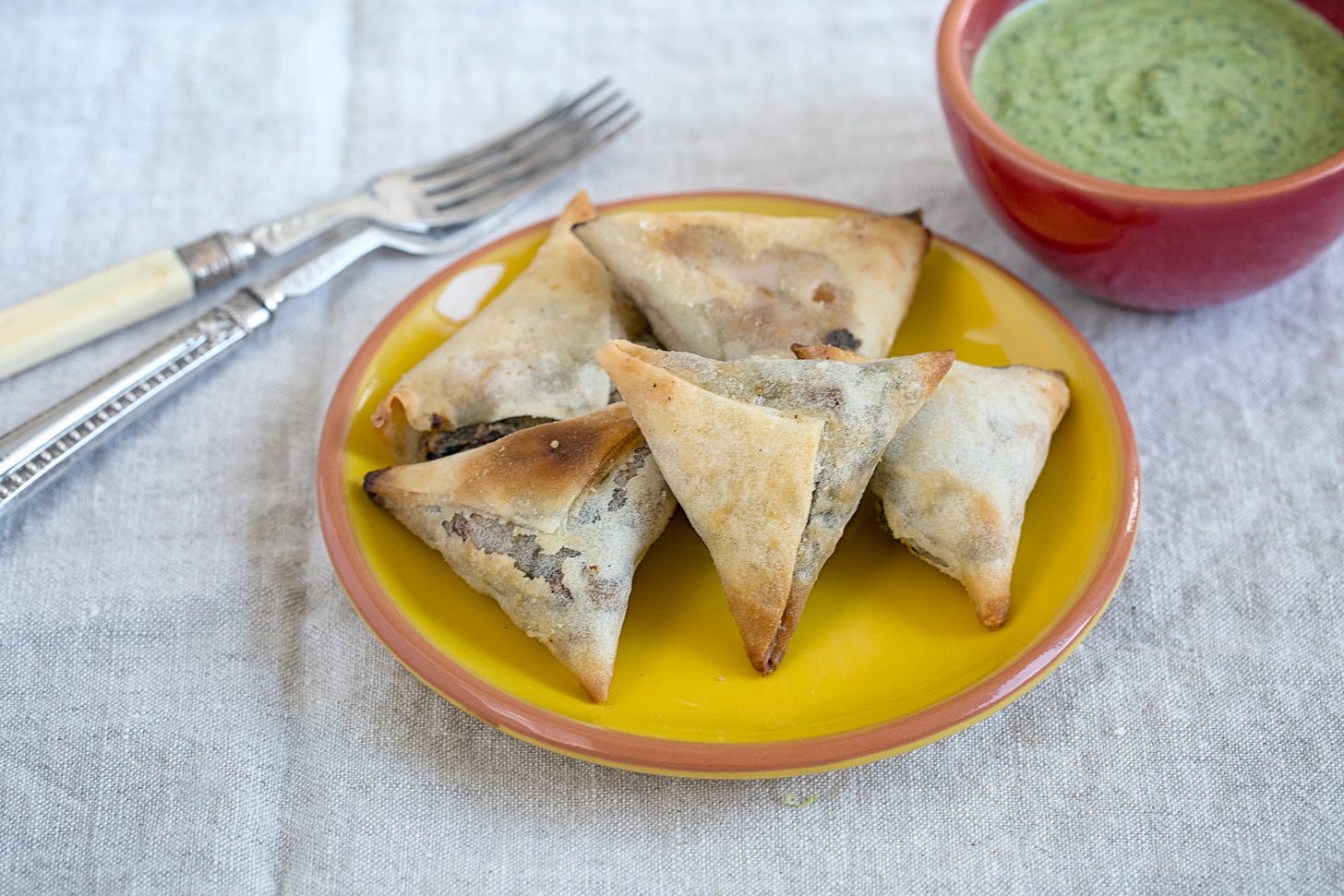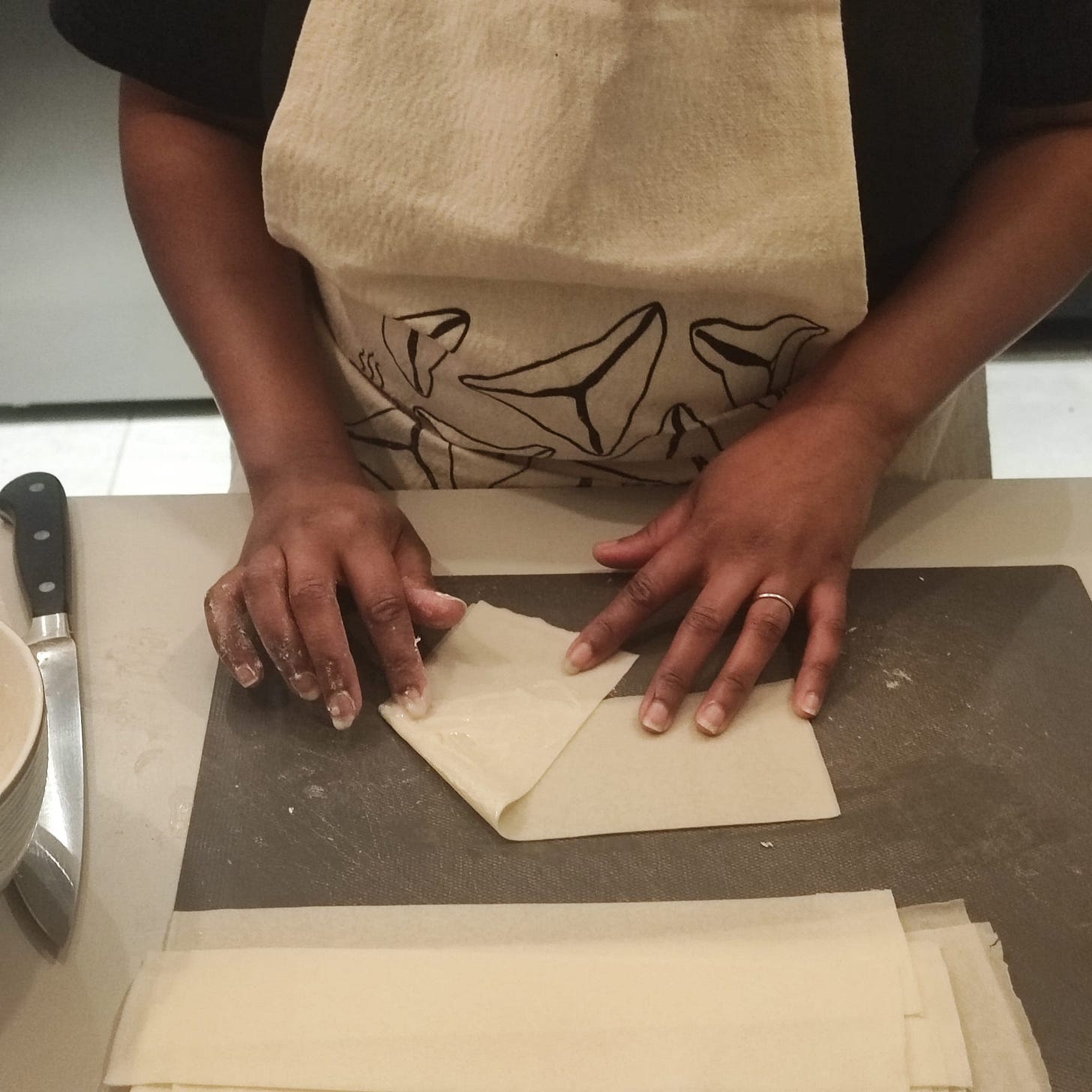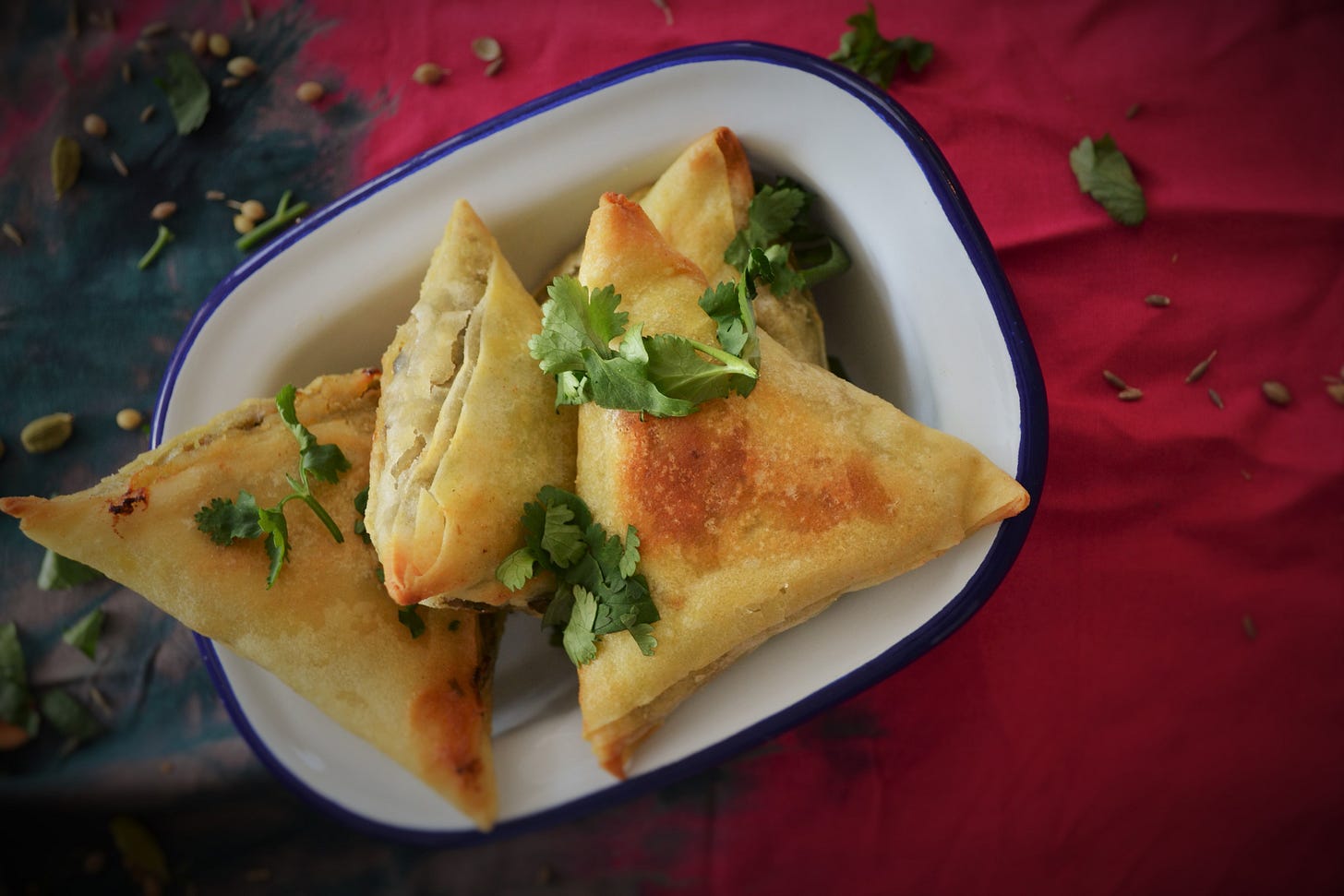Fozia Ismail’s Experiments in Yam
A recipe for roasted sweet potato with Puy lentils, coriander and coconut sambusa. Words by Fozia Ismail, photos by Fozia Ismail and Kirstie Young.
A Vittles subscription costs £5/month or £45/year. If you’ve been enjoying the writing then please consider subscribing to keep it running — it will give you access to the whole Vittles back catalogue — including Vittles Restaurants, Vittles Columns, and Seasons 1-6 of our themed essays.
Welcome to Vittles Recipes! In this new weekly slot, our roster of six rotating columnists will share their recipes and wisdom with you. This week’s columnist is Fozia Ismail. You can read our archive of cookery writing here.
Fozia Ismail’s Experiments in Yam
An essay, and recipe for roasted sweet potato, Puy lentils, coriander, and coconut sambusa
‘What is wrong old wife? What is happening to the daughters of the yam, seem like they just don’t know how to draw up the powers from deep like before’
— Toni Cade Bambara, The Salt Eaters
If you were to make an edible manifestation of drawing up powers from the deep, what would you cook? Who would you cook with, and who would you cook for? Perhaps you would dance, laugh, and sigh together at the overwhelming heaviness of the world. Hopefully there would be some relief and comfort in the gathering and eating together, and there would be something as simple as a yam.
Before the COVID-19 pandemic disrupted our lives, I used to invite a group of Black women over for dinner. Some were friends, some acquaintances; all were tired. These gatherings were called ‘dinner dinner joy joy’ because I felt we needed some joy and nourishment in what had become an increasingly hostile Britain. They were inspired by bell hooks’ pivotal work Sisters of the Yam: Black Women and Self-Recovery, a book exploring personal healing from the oppressive contemporary world.
Things we ate at the dinners included sambusa, mini-Yorkshire puds with beef and horseradish, slow cooked Somali lamb, and Somali rice with simple salads like kachumbari, always with Somali hot sauce. People would arrive and gather around, helping themselves to drinks, chatting and eating whatever was being put together. The atmosphere was warm, drink flowing along with music and candlelight. I cooked, but help came naturally – Yes, do cut the lemons please, Yes, do add the chopped garnish that I forgot about.
Although the gatherings gradually stopped post-pandemic, I recently found myself going back to hooks’ work and dreaming about what collective healing could look like. For this column, I picked the title ‘Experiments in Yam’ as a continuation of the spirit that filled those evenings eating together, and to give thanks to the transformative nature of hooks’ work in an edible way.
Hooks wrote that yam is
a life sustaining symbol of black kinship and community. Everywhere Black women live in the world, we eat yam. It is a symbol of our diasporic connections. Yams provide nourishment for the body as food, yet they are also used medicinally – to heal the body.
Given her roots in Kentucky, it is highly likely that hooks was referring to sweet potatoes rather than to true yam, a staple in West African and Caribbean food. But this series isn’t about which type of yam to cook, but rather about what experiments in cooking and thinking about yam reveal. With these experiments, I wish to make space for all the amazing Black African diasporic women who have passed on knowledge and care. I wish to express gratitude for their spiritual and culinary guidance that continue to sustain whole communities.
Sweet potato, Puy lentil, coriander, and coconut sambusa
Makes 30 sambusa (approximately)
Time 1 hr plus 30 mins cooling
Ingredients
2 25cm x 25cm spring roll pastry sheets (I use the Spring Home brand, found in the frozen section of South and East Asian groceries)
3 medium sweet potatoes (roughly 650g), chopped into 2-cm cubes
neutral oil (such as olive, sunflower, or rapeseed oil)
flaky sea salt
100g Puy lentils
1 onion, finely diced
1 large garlic clove, minced
2 tsp xawaash (or 1 tsp each ground cumin and ground coriander)
2 tbsp desiccated coconut
a large handful of fresh coriander, finely chopped
1 tbsp plain flour, mixed with a little water to make a thick paste
to serve
bisbas





